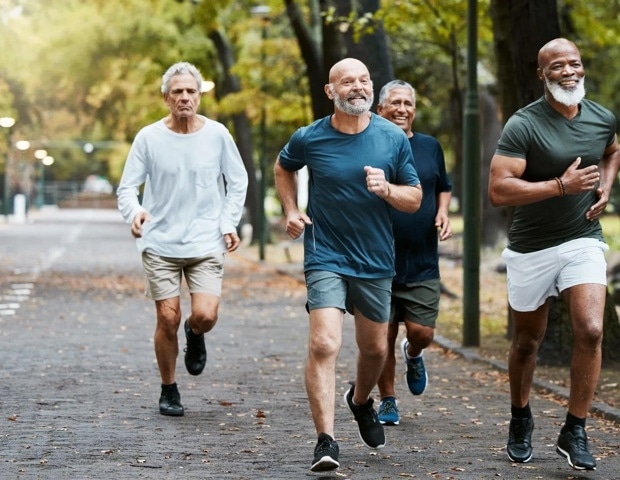In an evolving health landscape, emerging research continues to highlight concerns that could impact everyday wellbeing. Here’s the key update you should know about:
Exercise can help to restore a more normal, well-regulated immune system in people with post-COVID syndrome, according to a gold-standard randomized-controlled trial presented at the European Respiratory Society Congress in Amsterdam, the Netherlands.
The study was presented by Dr. Enya Daynes, from a team of researchers led by Professor Nicolette Bishop from Loughborough University, UK.
Dr. Daynes told the Congress: “Research suggests that those with post-COVID syndrome are at an increased risk of immune dysregulation where, instead of protecting the body, the immune system can become overactive or misdirected, attacking the body’s own healthy cells or reacting strongly to things that are not harmful.
“This can lead to ongoing inflammation and symptoms such as fatigue, joint pain, and generally feeling unwell, many of which overlap with what people experience in post-COVID syndrome.”
The trial included a group of 31 patients diagnosed with post-COVID syndrome who had been treated for COVID in hospital. Some of the patients were randomly assigned to take part in an eight-week exercise-based rehabilitation programme which included treadmill walking, cycling and strength training, while other patients were given standard care.
The researchers found that people who completed the exercise programme had significant improvements in their naïve immune cells compared to the control group. Naïve immune cells are important for recognizing and responding to new infections.
We found improvements in central memory CD4+T cells. These are responsible for providing a quick response to any infections that the body has encountered before, which could include COVID. We also found that central and effector memory CD8+T cells improved throughout the body. These cells can identify and fight future infections more rapidly, providing a crucial systemic immune response, and long-term immunity.”
Dr. Enya Daynes
Dr. Daynes believes that exercise likely helps by improving blood flow, mobilising immune cells and improving their ability to monitor for threats. This also improves communication between immune cells helping them to coordinate an immune response, and increases the production and turnover of cells, reducing chronic inflammation, and creating a balanced environment for immune function.
The team now plan to investigate if these benefits are the same in patients who have not been hospitalized with their initial COVID infection.
Dr. Guido Vagheggini from the European Respiratory Society’s expert group on respiratory clinical care and physiology, based at Portoferraio, Isola d’Elba, Italy, who was not involved in the research, said: “Post-COVID syndrome effects people of all ages. Symptoms can last for many months and can prevent people from returning to everyday activities at work or school.
“Research suggests that COVID can cause the immune system to attack the body, and we need to understand how to treat this.
“This research shows that people with post-COVID syndrome who are able to complete an exercise-based rehabilitation programme may experience benefits in their immune cell function. This could mean they experience fewer symptoms of immune dysfunction such as fatigue and joint pain. They may also be better at fighting COVID and other infections in the future.
“The findings are important for patients who fear repeated infections of COVID and provides a potential solution to this concern.”
Source:
